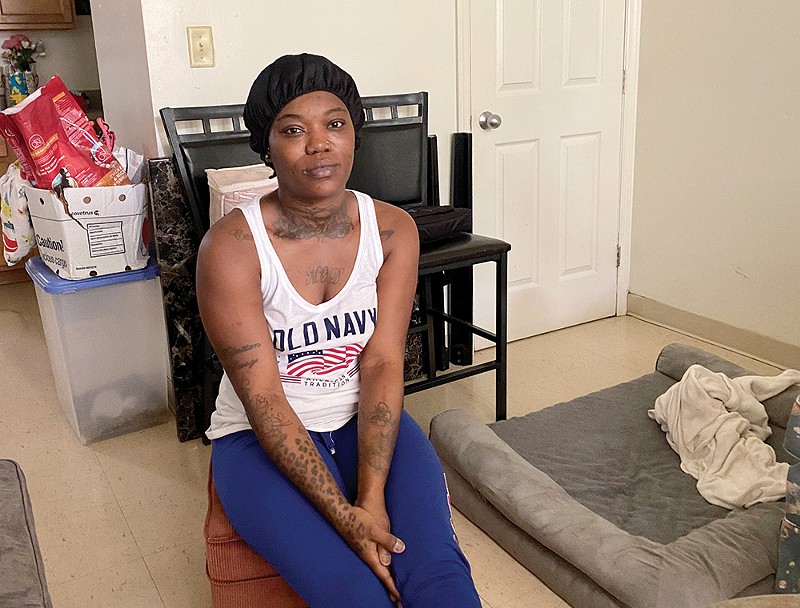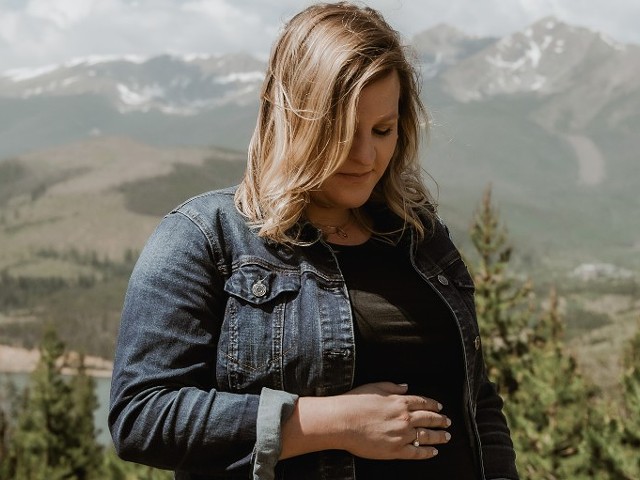
Chuny Ann Reed, 47, used to live on the 14th floor in Parkview Apartments. Now, she awaits trial at the Pulaski County Detention Center, in Ullin, Illinois, about 155 miles southeast of St. Louis. She faces federal charges of distribution of cocaine base and of fentanyl resulting in serious bodily injury. If convicted, she faces at least 20 years in prison, according to federal charging statements filed February 8 in the U.S. federal court in St. Louis.
So far, Reed is the only person charged in connection with the Parkview mass overdose event, and she has pleaded not guilty to the charges.
Reed has not been charged in connection with either the Parkview deaths or the Park Place fatality. No one has yet publicly suggested how fentanyl contaminated the crack cocaine that Reed allegedly sold from her Parkview apartment.
Like many substance users, Reed — who for years used both heroin and fentanyl — long supported herself by selling drugs, according to federal documents and people close to her.
Reed's first criminal conviction occurred in December 1997, when she pleaded guilty in St. Charles state court to a felony charge of cannabis possession. Court records do not show how much jail time, if any, she received.
A year later, Reed was convicted in St. Louis state court of two charges: illegal possession of cocaine base (crack) and a controlled substance. She was sentenced to three years in a state prison but was released in July 2001, court records show.
By 2019, Reed had moved into Parkview with her teenage daughter Emily. By all accounts, theirs was a low-key existence.
Neighbors describe Reed as friendly and quiet.
"We never had any problems or confrontations," J.J. recalls.
"We spoke a couple times," the ex-tenant quoted earlier says. "Actually, she wanted me to do her hair."
Problem was, Reed seemed high all the time, but would ask, "'Can you do my hair like this?'" the woman says. "I was like, 'Talk to me when you're sober.'"
One of the survivors of the February 5 mass overdose admitted to DEA agents that he regularly bought crack cocaine from Reed "for approximately two years," according to a federal affidavit filed in Reed's federal court case.
Surveillance video showed a Black male entered "Reed's apartment and stayed for several minutes," according to another DEA affidavit. "He then departed and returned directly to his apartment. Later in the day, this individual was discovered dead inside his apartment from an apparent overdose. At the scene of the overdose death, investigators recovered and seized a crack pipe with trace amounts of a suspected controlled substance inside the pipe."
Diane Dragan, Reed's federal public defender, declined to comment on the federal affidavits.
Danielle Reed, 30, is the oldest of Chuny Ann Reed's four children.
Danielle acknowledges her mother has used drugs for a long time.
"But my momma, she didn't hurt people," says Danielle, who describes the lengths her mother would go to in order to care for her younger sister Emily, a teenager who is severely disabled with cerebral palsy.
"She's loving, caring," Danielle says of her mother. "Everybody who do drugs is not a bad person."
I met Danielle on a Saturday morning in early May at her apartment off Jefferson Avenue, a short distance northwest of the Lafayette Square neighborhood. I was joined by a Dutch journalist named Merijn de Waal, who covers the United States and South America for his newspaper, NRC Handelsblad, of Amsterdam.
De Waal had contacted me a few months earlier from his home base in Amsterdam after finding articles I'd written about the opioid crisis in St. Louis.
De Waal wanted to write about the Parkview overdose deaths to help his readers understand America's surging drug overdose crisis — by far the worst in the developed world, according to the United Nations and other health watchdogs.
De Waal was in St. Louis for a weeklong visit to do some reporting, so we found our way to Danielle Reed's place.
Reed acknowledged during our interview that her mother is a longtime substance user.
"And was she only using crack or also other stuff?" de Waal asked.
"My momma didn't do crack," Danielle said.
"What did she do?"
"Heroin," Danielle said.
Fentanyl has all but replaced heroin in the St. Louis area. "There is no heroin in St. Louis," he said.
"Well, fentanyl," Danielle amended.
Danielle said her mother would never have intentionally mixed the fentanyl with the crack cocaine that led to so many overdoses. Someone else must be responsible for the fentanyl getting added to the cocaine.
"My mom doesn't know how to make the powdered shit," she said.
According to Danielle, the person who could make the crack cocaine base was her mother's boyfriend, who has not been arrested.
"I'm 100 percent and then some," she said. "My momma did not rock that shit up. She don't know how to do it. And I'm 100 percent sure I know he did it, and I know my momma's taking the fall for him."
"Did she tell you?" de Waal asked.
"I just know," she said, shaking her head. "It was totally an accident. The people at Parkview, they know her. They love her. She is a good person. My momma don't hurt people intentionally."





